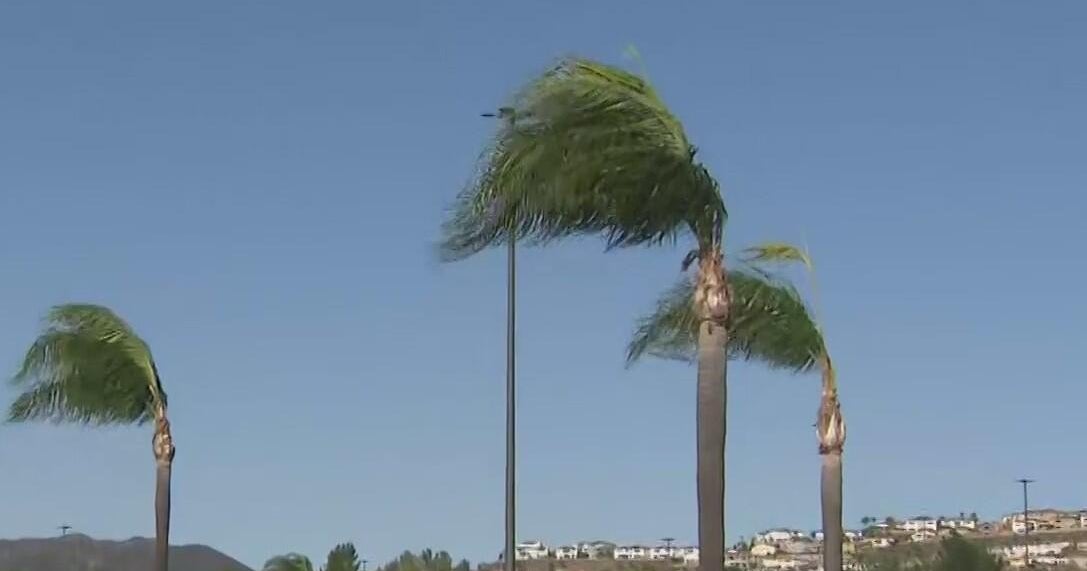What we know about tornadoes and climate change
The deadliest tornado to hit the U.S. in six years touched down in Alabama Sunday with winds of 170 mph and a path of 27 miles. It killed 23 people and was part of an early severe weather outbreak with 50 preliminary reports of tornadoes. At least 17 have been confirmed.
But while some were quick to point to climate change as a cause of the tornado outbreak, current science isn't definitive about how much climate change influences tornadoes.
On Monday, Democratic presidential hopeful Sen. Bernie Sanders posted a warning about climate change and tornadoes on Facebook. "The science is clear, climate change is making extreme weather events, including tornadoes, worse," he wrote.
Sanders is correct to say climate change makes extreme weather worse, though how much that applies to tornadoes is unclear.
But climate change seems to be shifting the concentration and range of tornadoes, pushing them into more vulnerable areas. In addition, evidence suggests there will be a more favorable environment for severe weather — and probably tornadoes — in a warmer future.
Recent trends in tornadoes
Finding trends in tornado numbers or even intensity is complicated. That's because the U.S. tornado record is rather short (since the 1950s) and prone to many uncertainties since it is compiled through eyewitness reports.
It's logical to assume that with more people living in remote areas now, you would see an uptick in the number of tornadoes since more are being observed. However, a trend isn't discernable — the graph appears flat.
To the naked eye, it appears there is a trend toward less violent tornadoes. But past inconsistencies in determining the strength of tornadoes make the record hard to trust. For instance, there is evidence that tornadoes may have been rated as more powerful than they actually were before the adoption of the Fujita scale in the late 1970s.
The bottom line is that, so far, there is likely no significant trend in the overall number or intensity of tornadoes. But that doesn't tell the whole story.
The science of tornadoes in a warming climate
Strong tornadoes are formed from a combination of warm, moist, rising air and strong "wind shear." Wind shear is a change in wind speed and/or direction with height — that helps provide spin to the supercell thunderstorms that aid in tornado formation.
In this warming world, global climate models clearly show warmth and moisture will increase. But climate models also suggest a general decrease in wind shear in the future. So which will win out: the increase in warm-moist air or the modest decrease in shear?
The devil is in the details
Armed with a global climate model ensemble, a team of researchers at Stanford and Purdue Universities in 2013 found there will be "robust increases in the occurrence of severe thunderstorm environments over the eastern United States" in response to global warming.
That result shouldn't be surprising given that more warm, moist, unstable air means more energy for thunderstorms.
But the team also found something unexpected. The computer models showed that a warmer climate would produce an increase in low-level wind shear on days when the air is more unstable. The team said that suggested "an increasing likelihood of atmospheric conditions that contribute to the most severe events, including tornadoes."
It's worth noting that in their study, wind shear does decrease, but the drop is concentrated in more stable, less stormy days. So the general decrease in wind shear has no impact on tornadoes.
Extreme tornado outbreaks getting more extreme
A more recent study published in 2016 titled "More tornadoes in the most extreme U.S. tornado outbreaks" hints that some of the conclusions of the 2013 study may be happening now.
CBS News sat down with the lead author of the 2016 study, Columbia University Professor Michael K. Tippett. He explained, "Extreme meteorological environments associated with severe thunderstorms show consistent upward trends."
Tippett analyzed the tornado record back to the 1950s and found that "the frequency of U.S. outbreaks with many tornadoes is increasing, and it is increasing faster for more extreme outbreaks."
But Tippett said it is unclear if the increase in tornadoes per outbreak is being caused by climate change. Tippett said that although the trend is being driven by consistent changes in the environment, the changes aren't necessarily the kind that would be expected from climate change.
Specifically, the study found that during big tornado outbreak days, unstable air isn't increasing as climate change would imply. Instead, it's wind shear that's increasing.
Tippett put it this way: "Either we don't understand all the impacts of climate change or it's not climate change."
But he cautioned that, in the future, "It's clear there will be some impact from climate change such as more frequent conditions that are favorable for supercell thunderstorms and an expansion of favored areas northward."
"Tornado Alley" is shifting east
In what is likely the most impactful of all the tornado trends, a fall 2018 study concluded "Tornado Alley" is spreading eastward from the Plains States toward the more vulnerable, more densely populated Southeast. The study found that may lead to a threefold increase in disaster potential, partly because the Southeast has more trees and a larger number of weak-framed homes where residents would be at risk. The shift is happening as drier, more stable air from the desert Southwest shoves thunderstorm formation eastward.
Lead author Victor Gensini told CBS News, "It's not a big jump to say that climate change is causing this shift east. The hypothesis and computer simulations support what we are observing and what we expect in the future."



